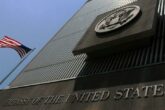August 06, 2024
Making an Iranian attack Tehran’s worst option
In the coming days, perhaps even hours, Iran may orchestrate an attack like the one it executed in April, in which it fired over 300 projectiles – a mix of one-way UAVs, cruise missiles, and ballistic missiles – directly at Israel. That attack was unprecedented, as Iran had until then sought to degrade and attrit its enemy Israel using the proxy and partner militaries at its disposal in Iraq, Lebanon, Syria, Yemen, the West Bank, and Gaza.
Until recently, most Iran watchers would never have anticipated Iran firing directly on Israel, and certainly not without first establishing a nuclear deterrent. Now, it appears Iran is about to do it for the second time in four months. US President Joe Biden has been stalwart in his efforts to avoid a regional war, beginning with his “Don’t” speech in October, followed by his ordering of a massive and persistent presence of US military assets into the region. But looking back, violence has steadily escalated. US policy has slowed the rise of the region’s temperature but has not succeeded in stopping it. Absent a course correction in Washington’s approach, the frog is inevitably going to boil.
The Supreme Leader will be less likely to launch a major missile attack if he believes the US military will preemptively strike to defang it.
The region seemed to approach the breaking point during the April attack. Thankfully, the combined defensive response from the United States, United Kingdom, Israel, and regional partners succeeded in preventing almost all of Iran’s weapons from striking their targets. That, along with Israel’s carefully calibrated military response, succeeded in averting a regional war. This time, reports suggest Iran might launch a larger attack with greater coordination and more aggressive participation from the Houthis and Hezbollah.
The combination of missiles from Iran and, in particular, Hezbollah causes the greatest concern. Hezbollah has foreshadowed that it will strike deeper into Israel, dipping into its strategic arsenal of precision-guided missiles. With or without Iran’s participation, Hezbollah, responding to Israel’s successful targeting of its military chief Fuad Shukr, could launch a volume of weapons large enough to overwhelm Israel’s layered missile defense. Should Nasrallah choose to come heavy, Israel will likely have to focus its response on Hezbollah’s more accurate and deadly attacks. That will leave less capacity to deal with weapons fired directly from Iran, making Israel more reliant on US military assets, and those of Washington’s partners and allies who are willing to engage Iran’s salvos.
Read the full story and more from The Times of Israel.
More from CNAS
-
Gaza After Hamas
To permanently remove Hamas from power, the United States must work alongside its Arab and Israeli partners to support the PA’s return to Gaza....
By Delaney Soliday
-
Israel's New Rules of War
Netanyahu knows that there is no modern world. In the Middle East, there is only the continuation of the ancient. Despite technology, humankind has not morally progressed, eve...
By Robert D. Kaplan
-
The Year of Mourning: Considerations for U.S. Middle East Policy Twelve Months After October 7
Washington should articulate and support a bridging strategy that assists Israelis in taking critical steps in service of their own security, that also support better outcomes...
By Jonathan Lord
-
U.S Approves $20 Billion in Arms for Israel
Jonathan Lord joins i24NEWS and Ambassador Danny Ayalon to discuss the US-Israel relationship, the increased U.S. military presence in the region, and President Biden’s succes...
By Jonathan Lord




